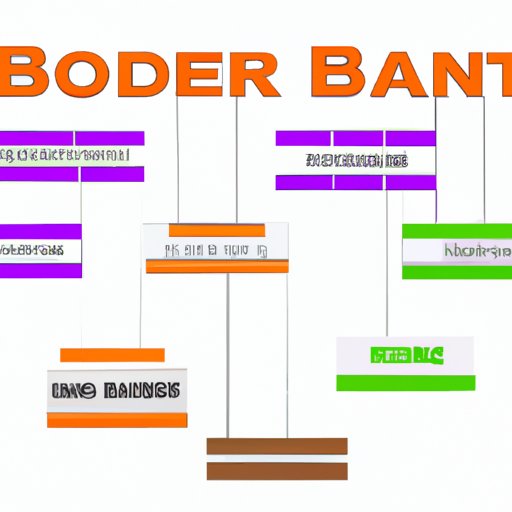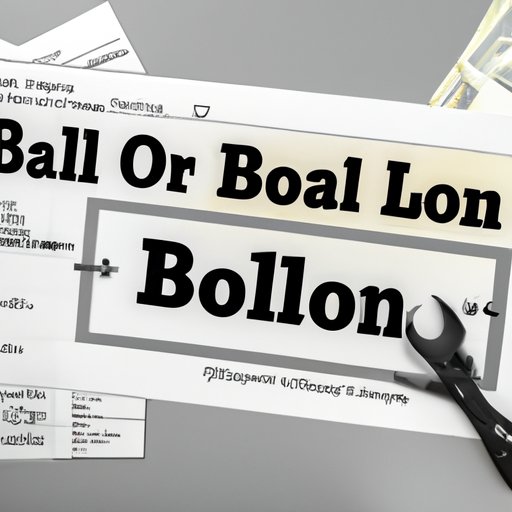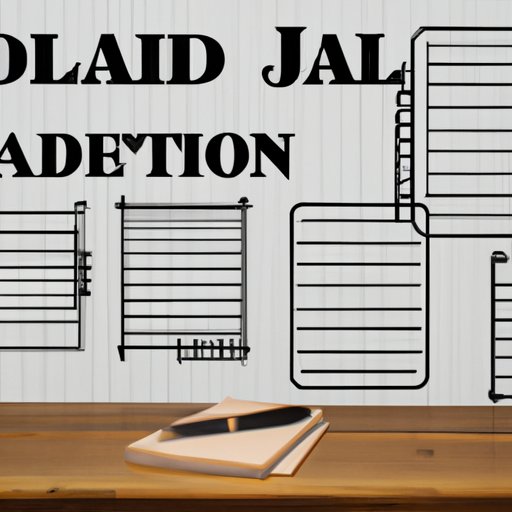Introduction: What Is a Jail Bond?
When someone has been arrested, they may be able to post bail in order to be released from jail while awaiting trial. A jail bond is an agreement between the court and a third party, usually a bail bondsman, that allows the arrested individual to be released from jail in exchange for a fee. The purpose of the bond is to guarantee that the individual will appear at their court hearings.
The amount of bail set by the court depends on the severity of the crime and the criminal record of the arrested individual. If the individual does not show up for their court hearings, the court will keep the money posted as bail. It is important to understand the responsibilities associated with posting a bond, as well as the potential consequences of skipping court dates.
Explaining the Process of Bailing Someone Out of Jail
The first step in bailing someone out of jail is to determine the amount of bail set by the court. This can be done by contacting the jail or the court directly. Once the amount of bail has been determined, it must be paid in full in order to secure the individual’s release.
There are several ways to obtain the funds needed to post bail. Individuals can use their own money, borrow from family or friends, or seek assistance from a bail bondsman. A bail bondsman is a third-party company that provides financial assistance to individuals who need to post bail. In exchange for a fee, typically around 10 percent of the total cost of the bond, the bail bondsman will provide the necessary funds.
The Pros and Cons of Posting a Jail Bond
Posting a jail bond can be beneficial in some cases, but there are also potential drawbacks. One of the main benefits of posting bail is that it allows the individual to remain free while waiting for their court date. This gives them time to prepare for their case and hire an attorney if needed. Additionally, if the individual appears at all required court hearings, the bail money will be returned.
On the other hand, posting bail can also be risky. If the individual does not appear at their court hearings, the court will keep the money posted as bail and the individual may face additional legal consequences. Additionally, the individual may have to pay additional fees to the bail bondsman if the court decides to revoke their bond.

An Overview of the Types of Bonds Available for Jail Release
When posting bail, individuals have the option to choose from several types of bonds. The most common type of bond is a cash bond, which requires the full amount of the bail to be paid in cash. Another option is a surety bond, which is backed by a third-party guarantor, such as a bail bondsman. Property bonds are also available, which require the individual to use their own property or the property of another person as collateral.

The Cost of Posting a Jail Bond and Where to Obtain One
The cost of posting a jail bond varies depending on several factors, including the amount of bail set and the type of bond used. Generally speaking, cash bonds tend to be the most affordable option, while property bonds can be more expensive due to the need for collateral. Additionally, bail bondsmen typically charge a fee for their services, which is typically between 8 and 15 percent of the total cost of the bond.
Individuals seeking to post bail can obtain the necessary funds from a variety of sources, including family and friends, banks, credit unions, or bail bondsmen. Additionally, there are local, state, and federal resources available for those who need assistance with posting bail.

Understanding the Legal Requirements Surrounding Jail Bonds
When posting a jail bond, it is important to understand the legal requirements surrounding the agreement. After posting bail, the individual may be subject to certain court-mandated restrictions, such as a curfew or travel restrictions. Additionally, the individual who posts the bond is responsible for ensuring that the arrested individual appears at all required court hearings.
Exploring the Impact That Posting a Jail Bond Has on the Individual’s Future
Posting a jail bond can have long-term implications for the individual’s future. If the individual skips their court hearings, they may face additional legal consequences, such as higher fines or even jail time. Additionally, the individual’s criminal record will be impacted, which could affect their ability to obtain employment or housing in the future.
Conclusion
Posting a jail bond can be a difficult decision, but it is often necessary for individuals who have been arrested. It is important to understand the process of posting bail, the costs involved, and the potential consequences of skipping court dates. By understanding the risks and rewards associated with posting a jail bond, individuals can make informed decisions about how to proceed with their legal situation.
(Note: Is this article not meeting your expectations? Do you have knowledge or insights to share? Unlock new opportunities and expand your reach by joining our authors team. Click Registration to join us and share your expertise with our readers.)
